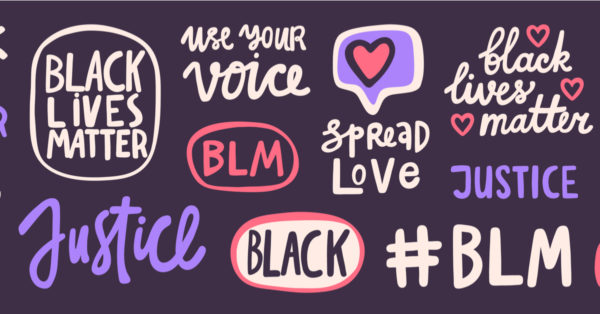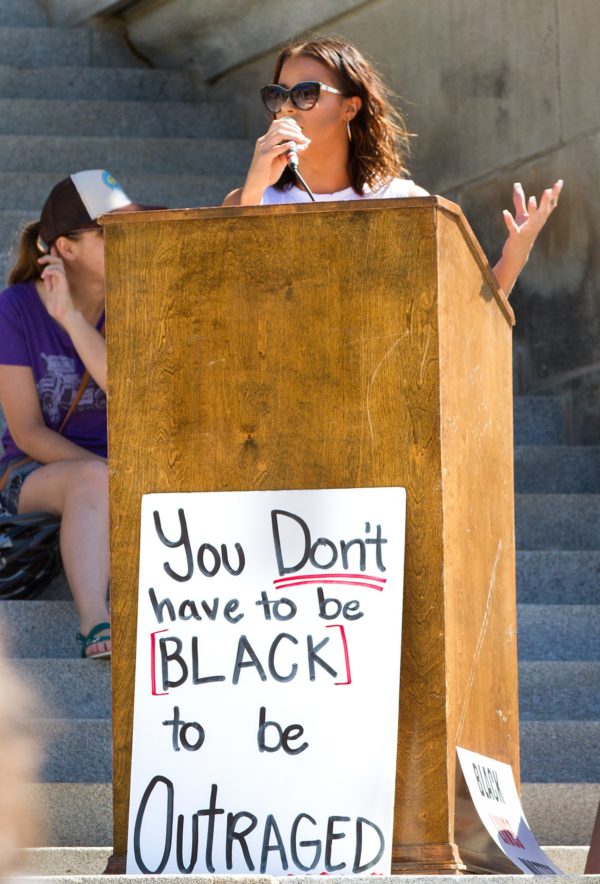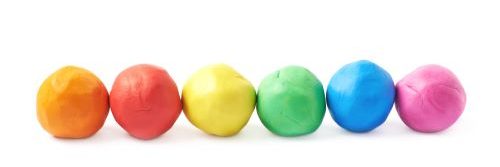Montessori and Race: Questions and Answers
Amid the horrific murder of George Floyd, we’ve entered a nationwide period of not only outrage, but serious reflection. During this critical period, many of us have been compelled to take a step back and examine our own blind spots—the kind that inevitably exist in an environment of systemic racism.
In doing so, a number of us have awoken to the aching realization that a passive, non-racist mindset is no longer enough. We’ve been jarred into action (albeit it frenzied) and have found ourselves eager to rifle through the corners of our lives, uncovering and dispelling any hidden remnants of prejudice or unconscious bias.
If, like so many parents and educators across the U.S., you’ve found yourself examining your own beliefs and lifestyle as our country experiences this painful collective wake-up call, then you might be wondering how—or if— Montessori fits into an anti-racist ideology.
This is a fitting reaction, but as you delve head-first into the matter, you may discover that you have more questions than answers. That’s completely understandable since it is a layered and nuanced issue.

At the root of the subject, though, is a relatively simple question: how do you proceed with this pedagogy in a way that helps (not impedes) society’s attempts to demolish the systemic racism that’s pervaded our infrastructure for centuries?
This post is an attempt to help you forge a path forward with Montessori in a responsible and conscientious way.
Was Maria Montessori Racist?
First, let’s get to it. A ripping off of the Band-aid, so to speak: Was Dr. Montessori a racist?

If you’ve been biting your nails over this one, you’ll be happy to hear that the answer is no. There’s absolutely no evidence to indicate that Maria Montessori practiced racism or held racist beliefs. In fact, there’s plenty of proof to the contrary.
Early on, it was clear that Maria Montessori marched to the beat of her own drum. Even as a young girl in Rome, she shattered the societal limitations imposed on her gender by attending a technical institute for boys and eventually becoming the first female doctor in Italy.
She went on to spend much of her professional life caring for children in poor, underserved communities where she noted similarities—not differences—among little ones of various classes and socioeconomic circumstances.
When she spoke of children, as she did often, she didn’t differentiate among race or gender or ability. Instead, she referred to them collectively as “both a hope and a promise for mankind.”
Montessori also advocated for the rights of disenfranchised groups during her lifetime, particularly disabled children and women.
In her later life, she experienced discrimination and alienation firsthand when she and her son were cast off as “enemy aliens” in India during World War II. Though her own views were polar opposite of Mussolini, she was stereotyped because of her nationality, and her son was imprisoned for his.
As a result of this experience, it’s safe to assume Montessori would be a staunch supporter of the Black Lives Matter Movement were she alive today.
Though we can’t directly pose the question to her, we do have her legacy as well as her writings as evidence of what resided in her heart. It’s easy to discern the love Montessori had for all people, regardless of race or creed, when you consider her own words: “We shall walk together on this path of life, for all things are part of the universe and are connected with each other to form one whole unity.” This is the root of what we Montessorians call cosmic education.
Did Dr. Montessori benefit from her race and social class? Absolutely.
Did she use her privilege to the benefit of those less fortunate? Absolutely.
What Is the Official Word on Montessori and Race?
Even if we can prove without a shadow of a doubt that Montessori herself was a non-racist or even an anti-racist, it doesn’t completely absolve the Montessori community.
Though the method was never intended to be racist or discriminatory toward any group, the fact remains that many Montessori schools grew up in an environment of systemic racism and are now products of this toxic environment.
As Montessorians, it’s time we face this reality and begin the process of cleaning our own houses, so to speak.
Recently, Amira Mogaji, President of the American Montessori Society, released an official statement on behalf of the organization. In this statement, she acknowledged the inherent biases that exist within Montessori and calls for the entire community to take strategic action against institutional racism:
“Now is the time for us to be intentionally anti-racist, and to denounce and call out injustices that are occurring right before our eyes—injustices that impact the students, parents, staff members, and schools within our community, and in some cases determine whether they live or die. It’s time to stand for, and with, justice.” – Amira Mogaji (President, American Montessori Society)
Are Montessori Training Programs Biased Against People of Color?
As we face the harsh and uncomfortable fact that we as Montessorians are potentially complicit in perpetuating racism in our society, homes, and classrooms, we must begin disassembling any unconscious biases. As part of this process, we must first consider our own training programs and evaluate them carefully for discriminatory practices.
Here are just a few of the questions that are important to ponder:
- Is Montessori accessible to people of color?
- Is the method of obtaining a Montessori certification biased against people of color?
- Does our training explicitly teach respect and appreciation for diversity?
- Are we in a continual state of critically assessing our teaching methods for bias and discrimination?
Asking these questions is a difficult process that can spur powerful and conflicting emotions. Answering them won’t be any easier. That’s not an excuse to shy away from what’s necessary, though.
As Dr. Montessori so eloquently articulated herself, “education is the best weapon for peace.” So it is on us to continue educating ourselves, each other, and our students on issues of social justice.

When we know better, we do better, and it has become transparently clear now that we must do better. When the topic of Montessori and race comes up, I hope you have some information to share now.

I’m not sure when this article was published, but I appreciate it enormously. The author points the right questions to be asking both about Maria Montessori’s original work as well as the way the practice of Montessori education has been practiced since she originally introduced her philosophy and curriculum.
Thanks so much.
This was published in June of 2020. I’m glad you appreciate it. There is current buzz about efforts in Montessori teacher training taking place to be more inclusive and less white-centered. I am happy to be part of a philosophy that prioritizes examining what we can do better.
Hi in 2023 a research article was published regarding Maria Montessori’s 1913 writings on race and how in her pedagogical anthology writing she leaned heavily into eugenic racist beliefs. The doi to the publication is below. You may want to revisit this article with a fresh perspective after reading the research.
https://doi.org/10.1080/00220272.2023.2249067